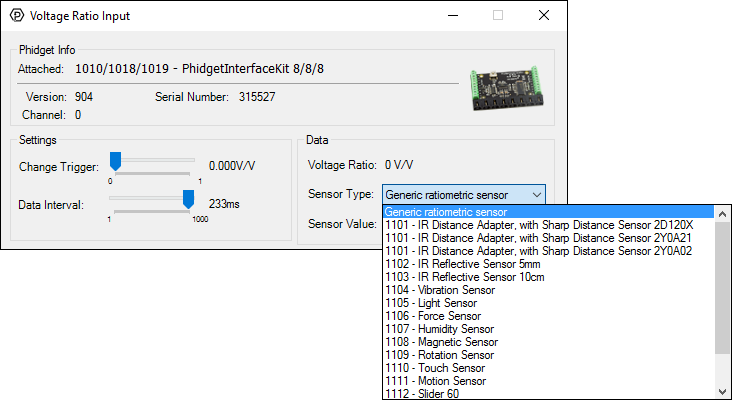Template:UGSensorVoltageRatioInput: Difference between revisions
From Phidgets Support
| Line 8: | Line 8: | ||
*Select the {{{1}}} from the ''Sensor Type'' drop-down menu. The example will now convert the voltage into {{{2}}} automatically. Converting the voltage to {{{2}}} is not specific to this example, it is handled by the Phidget libraries, with functions you have access to when you begin developing! | *Select the {{{1}}} from the ''Sensor Type'' drop-down menu. The example will now convert the voltage into {{{2}}} automatically. Converting the voltage to {{{2}}} is not specific to this example, it is handled by the Phidget libraries, with functions you have access to when you begin developing! | ||
<br clear="all"> | <br clear="all"> | ||
Latest revision as of 16:13, 10 May 2018
Voltage Ratio Input
Double-click on a Voltage Ratio Input object in order to run the example:

General information about the selected object will be displayed at the top of the window. You can also experiment with the following functionality:
- Modify the change trigger and/or data interval value by dragging the sliders. For more information on these settings, see the data interval/change trigger page.
- Select the {{{1}}} from the Sensor Type drop-down menu. The example will now convert the voltage into {{{2}}} automatically. Converting the voltage to {{{2}}} is not specific to this example, it is handled by the Phidget libraries, with functions you have access to when you begin developing!
